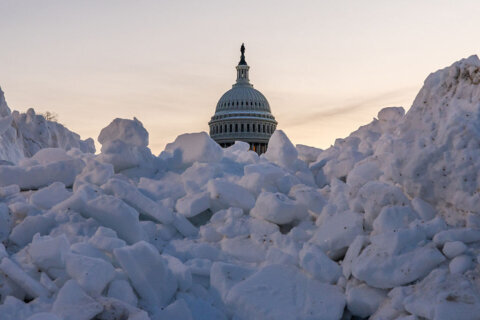The Smithsonian Institution said it’s moving as quickly as it can to repatriate the remains of about 30,000 people acquired for scientific research during the 19th century and early years of the 20th century.
The remains came from sources such as archaeological digs, donations from museums, universities, hospitals and individuals. The Smithsonian acknowledges the remains were obtained without informed consent and in ways incompatible with modern standards.
About half the remains are those of Native Americans and the Smithsonian has been working to return those remains since 1989.
The institution’s Human Remains Task Force said the remains came from dozens of countries and span time periods of thousands of years. The remains include whole or partial skeletons, teeth and bone fragments, fetal remains and tissues, including about 250 brains.
“One scientist at the Smithsonian’s Museum of Natural History collected human brains. So we do not want these in the collection, they’re not valuable for research, they really never were. So we’re looking to find names for these so that we can look for descendants and return them,” said Linda St. Thomas, chief spokesperson for the Smithsonian Institution.
While a team has been overseeing the repatriation of Native American remains, the Smithsonian is now forming a new team responsible for the return of non-Native human remains.
While Native remains can be returned to the 252 federally recognized tribes and communities, it’s not always easy to identify and repatriate remains of non-Native Americans because the labeling process has been inconsistent over the years.
“It varies because the way museums kept track of things in 1910 is very different than the way we do it today. So we’re talking about cards with … things written in fountain pen. So it is quite a process to identify, and then to find, descendants,” St. Thomas said.
The Smithsonian is also streamlining the process to request returns and is shaping policy for the memorialization of unidentified remains that may go unclaimed.
“The secretary has spoken out about this and said this is really, really important for us. This is not just scientific things. These are human beings and we will handle it respectfully, and try to move as quickly as we can to get all the human remains back to where they belong,” St. Thomas said.
Get breaking news and daily headlines delivered to your email inbox by signing up here.
© 2024 WTOP. All Rights Reserved. This website is not intended for users located within the European Economic Area.








